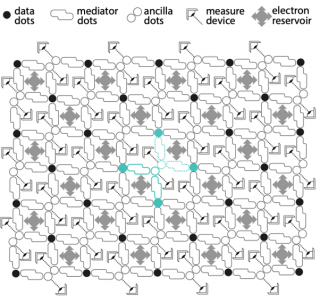London, UK and San Francisco, CA, 2 April 2025 – Quantum Motion has appointed Hugo Saleh as President and Chief Commercial Officer (CCO) to capitalise on the rapidly growing market demand for quantum computing. Founded in 2017 by leading researchers from Oxford University and University College London, Quantum Motion is accelerating its shift to productisation […]
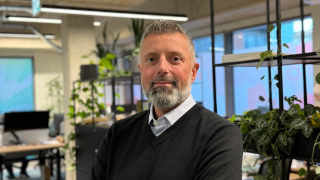
Five team members are heading to Anaheim, California to attend this year’s American Physical Society’s (APS) Global Physics Summit. The APS Global Physics Summit brings together scientists and students from around the world to connect and collaborate across academia, industry, and major labs. Quantum Motion team members will be presenting seven talks at this year’s conference. […]
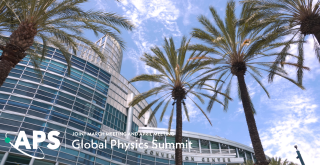
Quantum Motion has partnered with the National Physical Laboratory (NPL) and the University of Strathclyde to develop new ways to overcome the challenges of running quantum control electronics in extremely cold conditions. Quantum computing systems typically operate at deep cryogenic temperatures near absolute zero, -273.15° Celsius, inside cryostats, devices used to maintain extremely low temperatures. […]
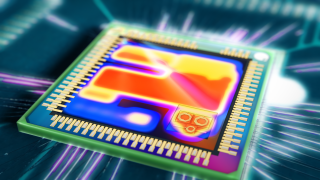
We are delighted to announce our Quantum Engineer rotation programme at Quantum Motion starting September 2025. Our early career programme is a unique opportunity to kickstart your profession in industrial quantum engineering. This is an entry-level role with one-year of training for those who want to become a quantum engineer. Successful candidates will join a […]
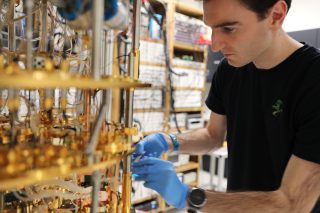
London, UK, 06 January 2025 – In a significant milestone for scalable quantum computing, Quantum Motion, a UK-based quantum computing scale-up founded by academics from University College London and Oxford University, has demonstrated rapid, large-scale characterisation of quantum devices fabricated using commercial semiconductor processes. Quantum Motion has designed a silicon chip featuring an integrated array […]
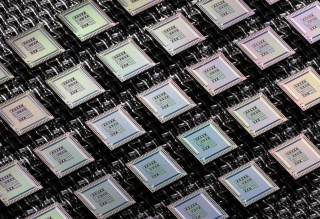
NPL and Quantum Motion have published a study in IEEE Transactions on Instrumentation and Measurement, which reports the test of thousands of silicon transistors at cryogenic temperatures, revealing the behavioural changes that must be accounted for in chips targeting quantum computing applications. The quantum computing field needs to move from research systems with a few […]
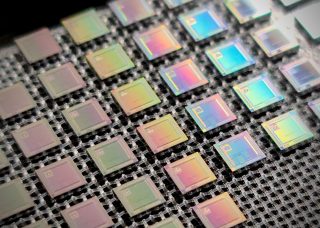
30th October 2024, London, UK – Quantum Motion, a UK-based quantum computing scale-up founded by Professor John Morton, University College London (UCL), and Professor Simon Benjamin, University of Oxford, has worked alongside Goldman Sachs to research how quantum computers can be used in financial services to perform complex calculations, such as options pricing. The research, […]
Quantum Motion has opened its new lab in Sydney at Cicada Innovations, Australia’s leading deep tech incubator. Quantum Motion’s multimillion-dollar investment in technology, infrastructure, and people will allow the company to contribute to Australia’s growing quantum industry and broad range of talent. “Australia is an exciting place for the technology sector,” explains Mark Johnson, Quantum […]
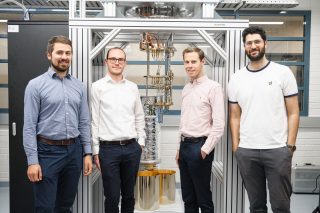
Alberto Gómez Saiz, Principal IC Engineer at Quantum Motion has been awarded a prestigious Industrial Fellowship by the Royal Commission for the Exhibition of 1851. The Industrial Fellowship from the Royal Commision aims to bridge the gap between academia and industry promoting research with real-world impact. Fellows conduct research within their company and are supported […]
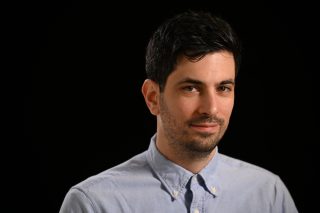
In our latest paper, our team have demonstrated exchange control, which forms the basis for two-qubit gates between spin qubits, in an MOS Double quantum dot device fabricated using a 300 mm wafer metal-oxide-semiconductor (MOS) process. The quality of the manufacturing manifests in low detuning noise and relatively long T2 for natural silicon in a […]
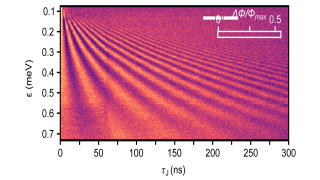
Integrating classical electronics alongside quantum devices in silicon offers the possibility of building truly scalable quantum computers. However, to ensure these hybrid chips succeed, we need to understand how the power dissipated by classical electronics, may affect the qubit devices located in close proximity. Our work, published in Chip, led by Quantum Engineer and UCL PhD […]
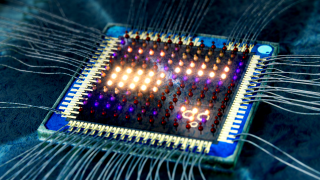
The microprocessors in your computer come embedded with temperature sensors, to ensure the CPU doesn’t overheat. Similar on-chip sensors need to be developed for the control electronics integrated into quantum computers, but these have the additional challenge of working at the ultra-low temperatures needed for quantum computing. The majority of leading quantum processor platforms (spin, […]
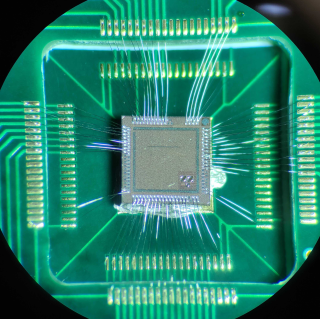
Moving from the 8-bit Nintendo Entertainment System to the 16-bit SNES, unlocked richer virtual worlds due to the increased bits of resolution. Increasing the resolution of electronic systems used to control qubits would similarly further improve the performance of quantum computers. We can ask, how many bits of resolution are needed to control quantum computers […]
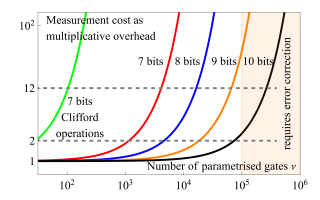
Three team members are heading to Minneapolis to attend this year’s American Physical Society’s (APS) March Meeting. The APS March Meeting brings together scientists and students from around the world to connect and collaborate across academia, industry, and major labs. Quantum Motion team members will be presenting three talks at this year’s conference. Find out […]

6th February 2024, London, UK – Quantum Motion, a UK-based quantum computing scale-up founded by Professor John Morton, University College London (UCL), and Professor Simon Benjamin, University of Oxford, has been selected by the UK’s National Quantum Computing Centre (NQCC) to build a quantum processor test bed for its site in Oxfordshire. Quantum Motion’s prototype […]
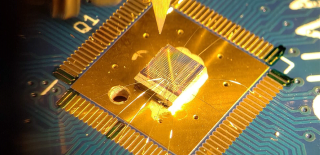
London, UK. 8 November 2023 – Quantum Motion, a UK-based quantum computing scale-up founded by Professor John Morton, University College London (UCL), and Professor Simon Benjamin, University of Oxford have signed a flagship academic partnership with the University of Pennsylvania, Philadelphia, US. Quantum Motion will provide researchers access to its latest silicon qubit chips alongside […]
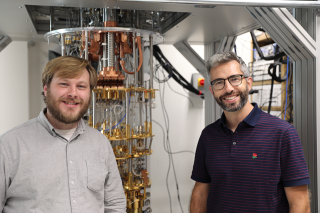
Diagram of cryogenic measurement setup. The legend in the bottom left gives the materials in the structures used for thermometry(b)-(e).. The microprocessors in your computer come embedded with temperature sensors, to ensure the CPU doesn’t overheat. Similar on-chip sensors need to be developed for solid-state quantum processors, but these have the additional challenge of working at […]
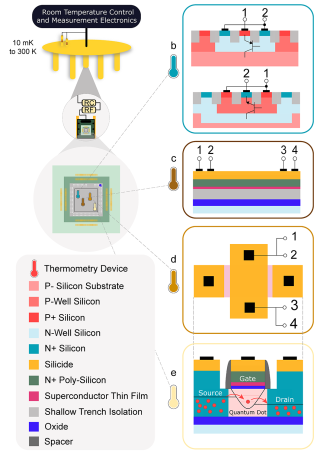
London, UK. 10 July 2023 – UK Chancellor of the Exchequer, Jeremy Hunt, today visited Quantum Motion’s London laboratory prior to his first Mansion House speech. In his speech he will reveal plans to release billions of pounds from British pensions to help fund early-stage businesses in sectors like quantum tech, life sciences, and fintech. […]

April Carniol will shape technical and commercial strategies across Quantum Motion to accelerate our research into products. She joins from IBM where she held several roles, including Technical Lead of Quantum Hardware Design Development. She led the delivery of first-of-a-kind, large-scale quantum processor designs, including the 127-qubit Eagle and 433-qubit Osprey processors. London, UK, 6 […]
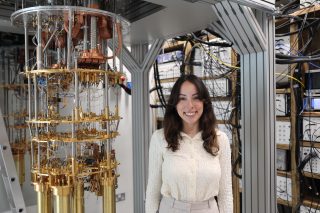
Our team presents a quantum dot-based radio-frequency multiplier operated at cryogenic temperatures with enhanced efficiency over current classical counterparts. This work demonstrates that silicon quantum devices are useful today. To build a scalable quantum computer classical electronics needs to operate in the fridge alongside quantum devices. Silicon offers the opportunity to integrate hybrid quantum-classical computing […]
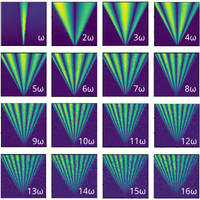
We present a new idea to process quantum information using silicon technology: The Pipeline. NISQ devices offer us the opportunity to achieve quantum advantage over classical systems without the use of full quantum error correction. We propose a NISQ processor architecture in which qubit states travel through a layered physical array of structures which realise […]
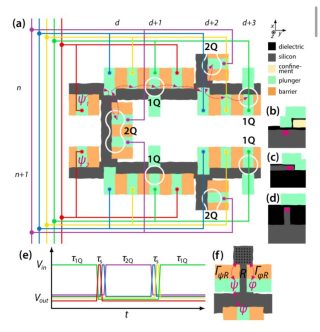
London, UK. 24 May 2023 – Sony Innovation Fund has become the latest high-profile investor to back Quantum Motion, a UK-based quantum computing scale-up founded by Professor John Morton, University College London (UCL), and Professor Simon Benjamin, Oxford University. Sony Innovation Fund is joining the second close of the company’s funding round, announced in February […]
Eight team members are heading to Las Vegas to attend this year’s American Physical Society’s (APS) March Meeting. The APS March Meeting brings together scientists and students from around the world to connect and collaborate across academia, industry, and major labs. Quantum Motion team members will be presenting seven talks and one poster at this […]

Our latest paper demonstrates a new quantum sensor for semiconductor qubits that, while being more compact than previous detectors, performs at the state of the art. Physical Review X Paper
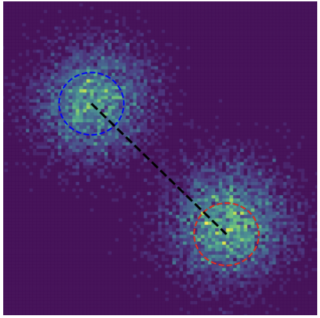
London, UK. 21 February 2023 – Quantum Motion, a UK-based quantum computing scale-up founded by Professor John Morton, UCL, and Professor Simon Benjamin, Oxford University, has raised over £42 million in equity funding from some of the world’s leading quantum and technology investors. The oversubscribed round is led by Bosch Ventures (RBVC) and joined by […]
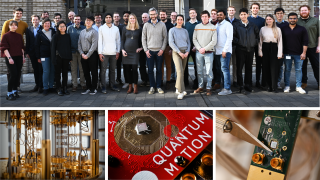
Anna Stockklauser will direct our product development across Quantum Motion to grow our teams. She joins from Rigetti Computing where she held several roles including Director of Product Strategy. Her academic background brings technical expertise in hybrid quantum systems and semiconductor quantum dots. London, UK, 6 February 2023 – Quantum Motion, a UK-based quantum computing […]
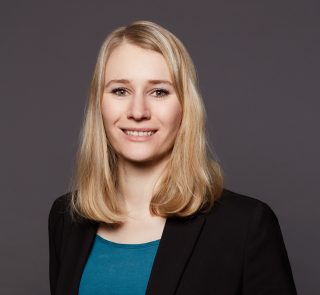
Our latest paper demonstrates that we have upgraded charge sensors in silicon, which can now sense charges 500 nanometers apart from each other. This will help optimise the layouts of quantum processors. This is a great demonstration of collaboration from team Quantum Motion (Sofia Patomäki, James Williams, Constance Lainé, Ross Leon, Michael Fogarty & others) with our partners imec and Niels Bohr Institute, […]
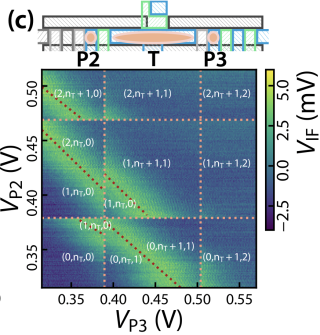
Jane Osborne-Buglear will lead the delivery of Quantum Motion’s strategy and grow the company to meet its goals. Brings 30+ years of experience in the technology sector, scaling multiple businesses from early stage to global market presence. London, UK, 16 December 2022 – Quantum Motion, a UK-based quantum computing start-up led by academics from UCL […]
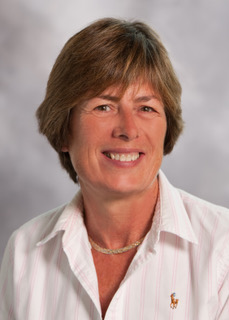
Quantum dots in silicon are not only great to host qubits but also to help generate the frequencies necessary to read and manipulate them. Now, we demonstrate a quantum dot-based frequency multiplier with ideal frequency conversion up to x10. Get in touch with our team to discuss the details: Giovanni Oakes, Lorenzo Peri, Alberto Gómez […]
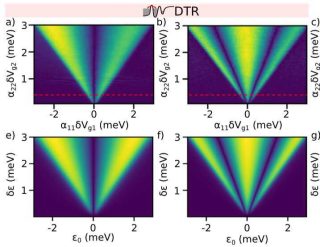
In a major step forward for mass characterisation of quantum devices made on a silicon chip our team has demonstrated how 1024 quantum dots, fabricated in a commercial semiconductor foundry and occupying an area of less than 0.1mm² can be measured in less than 5 minutes. This is at least 100 times faster than the […]
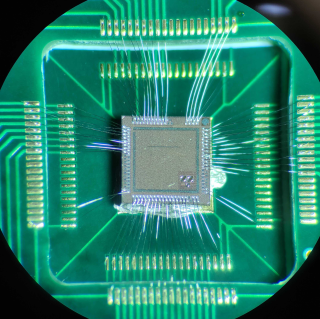
London, UK, 26 October 2022 – Quantum Motion, a UK-based quantum computing start-up led by academics from UCL and Oxford University, has achieved a world-record measurement of quantum devices made on a silicon chip. The company has been able to place thousands of quantum dot devices, integrated alongside control electronics operating at temperatures less than […]
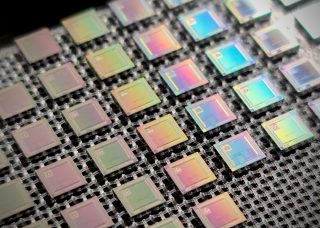
We describe a new type of electronic noise (the cyclostationary shot noise), where this noise determines the ultimate limit of sensitivity of compact charge sensors for silicon spin qubits. The results have strong implications on the better design of quantum sensors for the readout of spin-based quantum computers. arXiv Paper
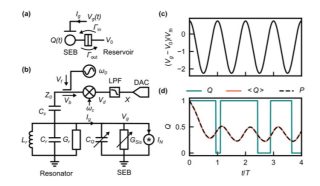
Parametric amplifiers have been instrumental in achieving quantum advantage using superconducting technology. Now, we demonstrate that they can be built out of silicon. Check out our proposal and proof-of-principle demonstration of a parametric amplifier based on the quantum capacitance of silicon quantum dots. APS Abstract arXiv Paper
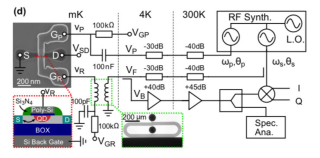
We have identified an architecture that enables the implementation of a 3D qubit lattice in a 2D hardware platform, which opens up doors to a wide range of applications that were previously constrained by qubit connectivity. In particular, we found that it can remove almost all overheads for a leading quantum error mitigation method in […]
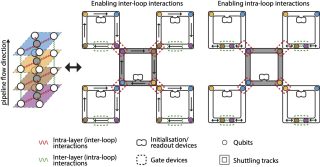
Check out how we reduced the on chip real state of spin readout sensors while achieving fault tolerant readout fidelity at state-of-the-art timescales. arXiv paper
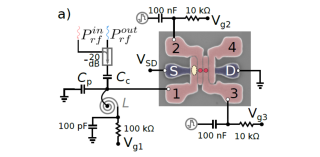
All you need to know about radio frequency reflectometry and how to measure quantum electronic devices fast. arXiv paper
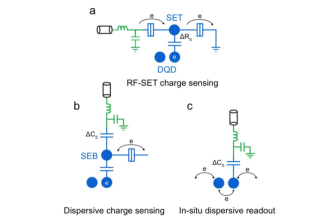
After a lot of anticipation we are excited to announce our official lab opening today. We were joined by Theo Blackwell, MBE and Chief Digital Officer for the Mayor of London’s office for the opening ceremony, which included a bond-wire cutting over a PCB board as part of the ceremonial ribbon-cutting ceremony. Theo shared inspiring […]
For those of you that would like to know more about Silicon-based Quantum Computing, the state-of-the-art, the challenges and perspectives ahead, check out our review in Nature Electronics Nature article
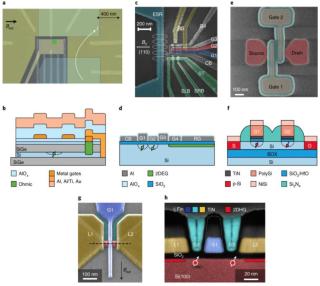
LONDON, UK – Nov. 5, 2021 – A UK based consortium launched today with the goal to develop a cryogenic chip for integrated control and readout of qubits, based on CMOS technology. Named Altnaharra, a three-year UKRI project led by Quantum Motion, brings together partners with renowned expertise in qubits based on superconducting circuits, trapped […]
London, UK, 31 March 2021 – Quantum Motion, a UK-based quantum computing startup led by academics from UCL and Oxford University, has made a breakthrough that radically advances the viability and production of quantum computers. Quantum Motion has been able to demonstrate state of the art quantum capabilities using industrial-grade silicon chips, helping to set […]
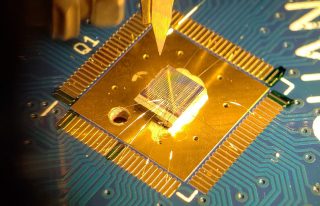
We demonstrate a neural-network-based methodology that allows for extraction of the noise spectrum associated with any qubit
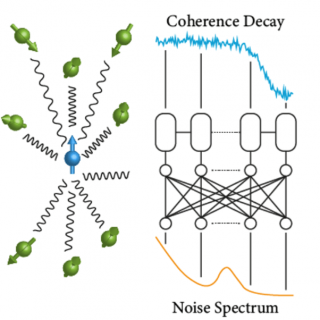
We present a cryogenic integrated circuit (IC) fabricated using industrial CMOS technology that hosts three key ingredients of a silicon-based quantum processor
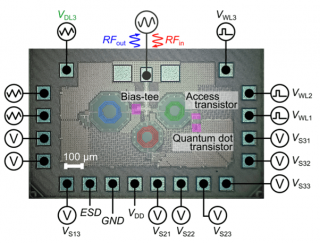
Spin qubits in quantum dots are a compelling platform for fault-tolerant quantum computing
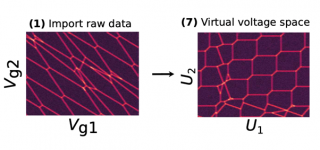
We report measurements of ambipolar gate-defined quantum dots in silicon on insulator (SOI) nanowires fabricated using a customised complementary metal-oxide-semiconductor (CMOS) process.
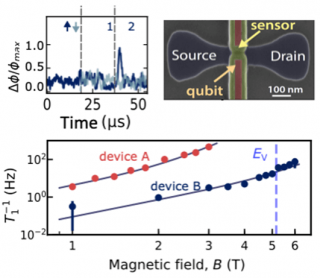
We demonstrate long range capacitive coupling in 2D arrays of gate-induced quantum dots in silicon nanowire field-effect transistors
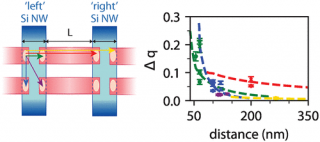
We report the first measurements of an electron spin in a device fabricated using 300mm wafer scale processing

Implementing a Hubbard model variational quantum eigensolver on a NISQ platform
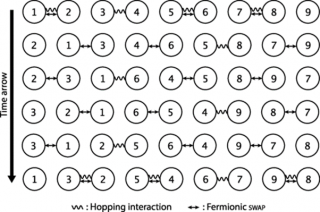
We present a surface code architecture for silicon quantum dot spin qubits that is robust against charge leakage errors by incorporating multi-electron mediator dots
